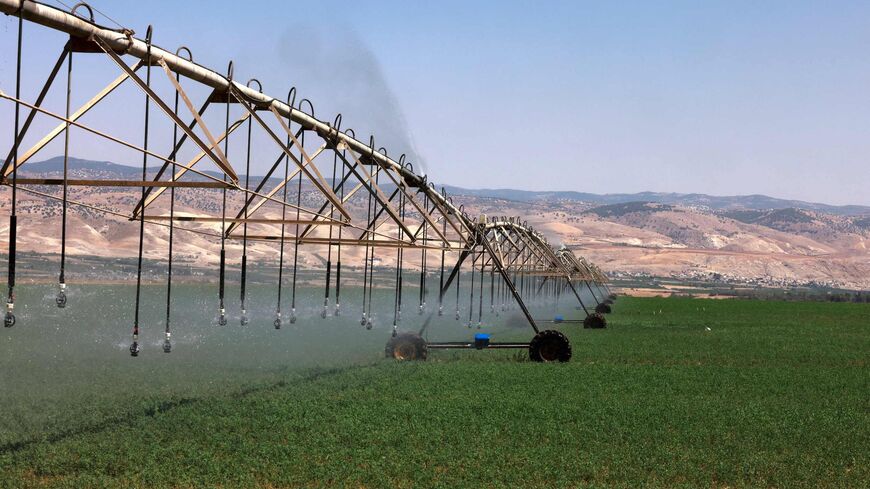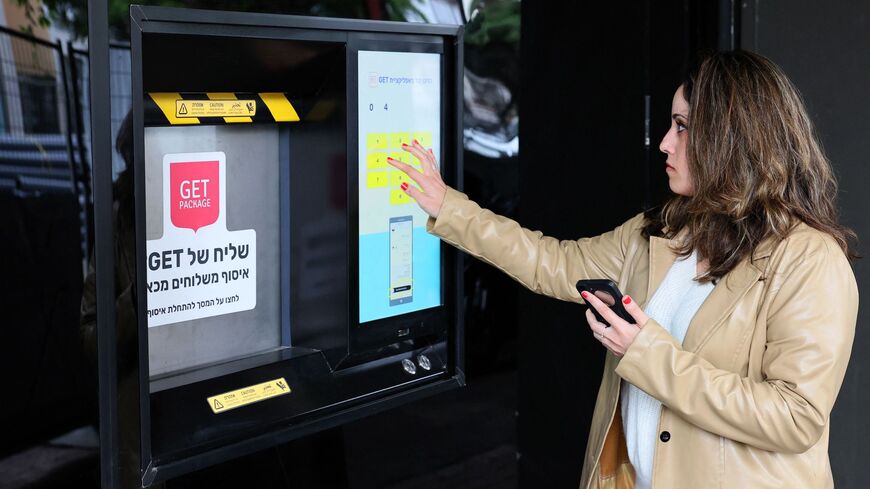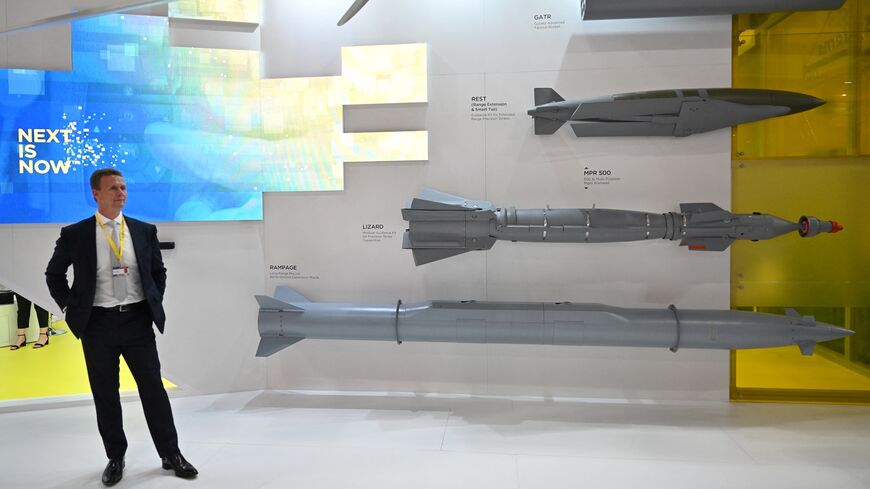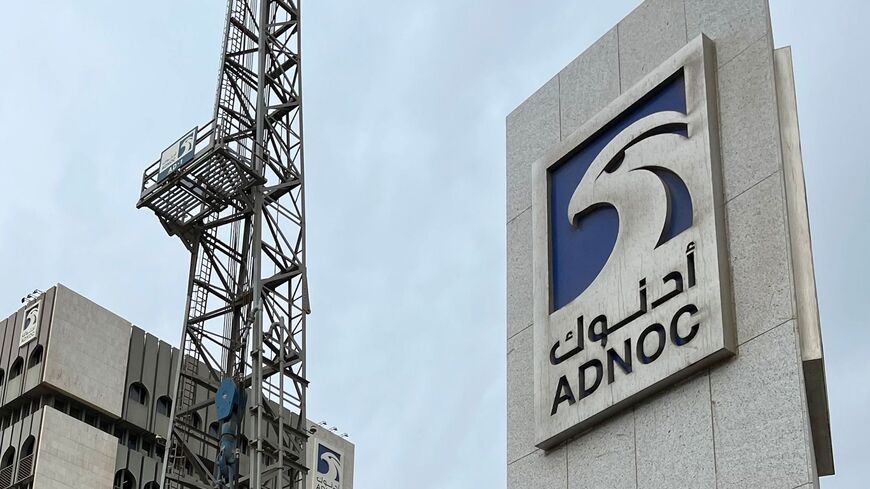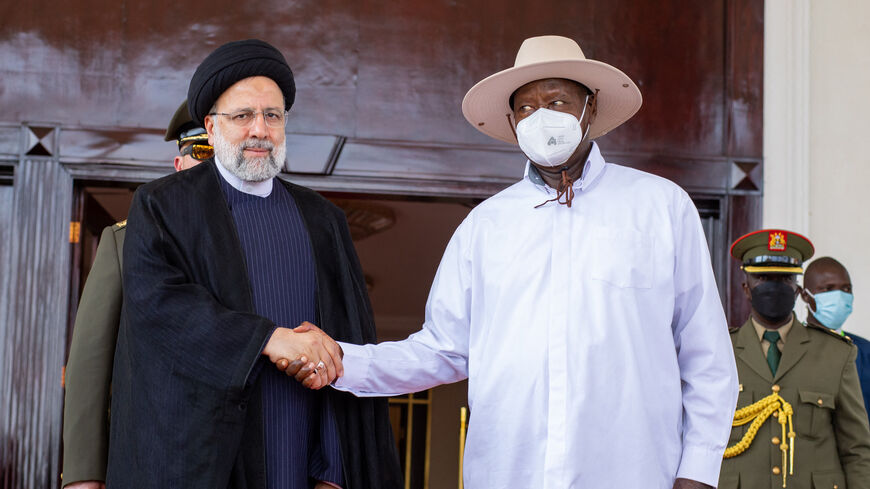Green-tech demand to unlock more deals for Israel in Middle East
Al-Monitor Pro Members
David Rosenberg
Israeli reporter specializing in business, economics and politics
June 9, 2023
Israeli companies offering solutions to climate change, as well as the growing scarcity of land and water, are poised for unprecedented growth opportunities. Building on expertise developed to address limited land and water resources at home, Israel hosts hundreds of green-tech companies, ranging from industry veterans to startups. That expertise is being leveraged under a tie-up announced in May between Israeli water supplier Mekorot and Microsoft to make water-usage data available in real-time to startups and researchers. Israel’s green-tech market opportunity comes as the Biden administration renews America’s commitment to combating climate change and Europe seeks to wean itself off Russian fossil fuels. In addition, a new market has opened up in the Gulf, where governments aim to reduce their carbon footprints and address water scarcity and related issues. Globally, demand for technology-based solutions is becoming increasingly urgent as climate change impacts are emerging more quickly than expected.
- Israel counts about 840 startups in green-tech fields, specializing in areas ranging from carbon-tech and food and land usage to water-tech and clean industry, according to industry tracker Startup Nation Central. Some 66 of those companies are focused specifically on desertification issues, which are especially relevant for the Middle East. Green-tech fundraising has grown from about $800 million in 2019 to a record $3.8 billion in 2021, before falling back in line with the general downturn in tech fundraising last year.
- In addition to startups, Israel boasts established companies in green-tech sectors. Netafim and Rivulus are among the world’s largest developers and manufacturers of micro-irrigation equipment, which uses far less water than conventional irrigation. IDE Technologies designs and operates desalination plants in Israel, the United States, India, China and Australia. It has proposed a controversial plan to build a $5 billion facility in Mexico to provide water for Arizona. Publicly traded Ormat Technologies is the world’s only vertically integrated developer and owner of geothermal-power plants. In March, it raised $300 million in a secondary offering on the New York Stock Exchange.
- After a false start in the mid-2000s and a hiatus while the world coped with the Covid-19 pandemic, global demand for green technology has experienced renewed growth. According to the tech-industry research firm Crunchbase, climate-change startups globally raised $22 billion last year, up from $18 billion in 2021 and just $7 billion in 2020. Future Market Insights projects 24.2% compounded annual growth for the global climate-tech market in 2022-2032.
- A March report by the Intergovernmental Panel on Climate Change found that world temperatures will rise 1.5 degrees Celsius above pre-industrial levels in the early 2030s, crossing a critical threshold for global warming. To prevent warming from exceeding 2 degrees, global greenhouse gas emissions must decline by about 35% by 2035, it said.
- Already hot and dry, the Middle East will feel the brunt of global warming. Estimates are that a rise of 2 degrees in global temperatures would lift those in the Gulf region by 4-5 degrees, making the region uninhabitable much of the year. The United Arab Emirates and Saudi Arabia are already among the world’s most water-stressed countries. With regards to the Eastern Mediterranean and Middle East, the Cyprus Institute’s Climate and Atmosphere Research Center said in a 2022 study that they are warming almost twice as fast as the global average, with temperatures projected to rise up to 5 degrees.
- Gulf countries have adopted ambitious targets for net-zero emissions and other policies. The UAE, Saudi Arabia and Bahrain have pledged to reach the goal within the next three to four decades. Saudi Arabia plans to generate half of its electricity from renewables by 2030, up from 1% today. Well-funded initiatives present market opportunities for technology fixes to meet the targets. Israeli targets are less ambitious and are so far not being met, with global-warming emissions due to fall 12% by 2030, less than half the 27% pledged to the UN, according to a May report by the Environmental Protection Ministry.
- The 2020 Abraham Accords have enabled growing cooperation in climate change and environmental issues between Israel and the Gulf to meet shared challenges. Among those, Abu Dhabi agribusiness company Bayunah signed an agreement with Israel’s Watergen in December 2020 to install freshwater-production devices in commercial and government buildings. Israel’s Agriculture Ministry and the UAE Food and Water Ministry are cooperating to identify expertise, technologies and best practices in the food chain. Since December 2021, Israel’s Haifa University and the UAE’s Zayed University have been engaged in joint environmental research.
- Although the biggest green-tech market opportunities exist in the Gulf, Israel has been developing business with non-Gulf countries. In April, a group of four Israeli tech companies teamed up with Morocco’s Mohammed VI Polytechnic University to boost production of fish food without using water, land or energy. Last November, Israel and Jordan signed a memorandum of understanding under which Jordan will build 600 megawatts of solar power capacity for export to Israel in return for Israel providing Jordan with 200 million cubic meters of desalinated water.
- While rapidly growing environmental challenges and warmer diplomatic relations are creating business opportunities for Israeli companies, much of the Middle East remains effectively off limits to Israeli companies. The most important of these is Saudi Arabia, which has so far declined to sign on to the Abraham Accords despite recent efforts by Washington to coax it into doing so. Egypt, which does have formal ties and faces severe water and climate problems, prefers to limit its commercial relations with Israel to cooperation in natural gas.
- Elsewhere, the United States has doubled down on its climate change policies, in particular with the 2022 Inflation Reduction Act, which allocates $370 billion to combating climate change. In March, the European Parliament and the Council raised the target for energy from renewable sources to 42.5% by 2030, up from 32% previously.
Scenario 1: Growing demand in the Middle East and US
Spurred by growing extreme-weather events, public pressure, and government regulations and spending, demand for green technology continues to increase globally and in the Gulf. In response, funding for climate-tech startups in Israel recover after last year’s downturn, even as the rest of the tech industry continues to lag. Regionally, research and development cooperation and business deals with the Gulf continue to grow, despite the political challenges posed by Israel’s hard-right government. Elsewhere in the region, growing pressures from climate change lead other countries that have been reluctant so far to show an interest in Israeli technology. A Democratic administration in the United States encourages increased government spending and tougher environmental regulations, creating market opportunities. European plans to wean itself off Russian fossil fuels continue to be an impetus for an accelerated switch to alternative energy.
Scenario 2: Lost opportunities due to politics
Environmental challenges continue to boost demand for green-tech solutions globally and regionally, but opportunities for Israel are constrained by tense relations with the Arab world. Gulf spending on green-tech is reduced as low oil prices limit government spending. US elections in 2024 bring the Republican Party to power, and the Biden White House’s drive to combat climate change is curtailed. Opportunities in China and India fail to emerge due to local competition and official preference to buy domestic. Continued high interest rates delay a recovery in startup investment in Israel and the world, including green-tech. That, in turn, retards technology development and causes some companies to shut down.
The impact of climate change is expected to grow more severe in the coming years in the form of extreme weather events. Thus, political and popular resistance to the costs and other trade-offs involved in combating should dissipate, ensuring market opportunities for companies offering tech solutions. This is particularly true in the Middle East where regional politics often precludes cross-border cooperation, forcing countries to seek purely domestic solutions. While strained political relations between Israel and Arab countries may make business deals more difficult, the need for green-tech should enable most of them to proceed.
A bigger question mark hovers over the US opportunity. More than other major markets, US demand hinges on politics and which party controls the White House after 2024. That said, it seems likely that even a Republican administration will find itself seeking technology fixes in the face of extreme weather events such as flooding, droughts and wildfires, ensuring continued demand. Moreover, state and municipal interest in green-tech should continue.
On the supply side, the recovery of green-tech investing in Israel and the world hinges on interest rate developments. Given the rising global demand for green-tech, Israeli startups are well-positioned to rebound before other tech sectors do. While a recovery doesn’t appear to have emerged yet, with first-quarter 2023 data showing a continued drop, fundamentals point to a recovery perhaps later this year.
David Rosenberg has more than 30 years experience reporting, commenting and speaking on business, economics and politics in Israel and the Middle East. He has worked for Reuters, The Jerusalem Post and Dow Jones, and was bureau chief for Israel for Bloomberg News. He is the author of two books (Cloning Silicon Valley, 2001, and Israel’s Technology Economy, 2018) and has been published in The Wall Street Journal and Foreign Policy. He now writes commentary for the Haaretz daily.
We're glad you're interested in this memo.
Memos are one of several features available only to PRO Expert members. Become a member to read the full memos and get access to all exclusive PRO content.

Already a Member? Sign in
The Middle East's Best Newsletters
Join over 50,000 readers who access our journalists dedicated newsletters, covering the top political, security, business and tech issues across the region each week.
Delivered straight to your inbox.
Free
What's included:
Free newsletters available:
- The Takeaway & Week in Review
- Middle East Minute (AM)
- Daily Briefing (PM)
- Business & Tech Briefing
- Security Briefing
- Gulf Briefing
- Israel Briefing
- Palestine Briefing
- Turkey Briefing
- Iraq Briefing
Premium Membership
Join the Middle East's most notable experts for premium memos, trend reports, live video Q&A, and intimate in-person events, each detailing exclusive insights on business and geopolitical trends shaping the region.
$25.00 / month
billed annually
$31.00 / month
billed monthly
What's included:
Memos - premium analytical writing: actionable insights on markets and geopolitics.
Live Video Q&A - Hear from our top journalists and regional experts.
Special Events - Intimate in-person events with business & political VIPs.
Trend Reports - Deep dive analysis on market updates.
We also offer team plans. Please send an email to pro.support@al-monitor.com and we'll onboard your team.
Already a Member? Sign in


